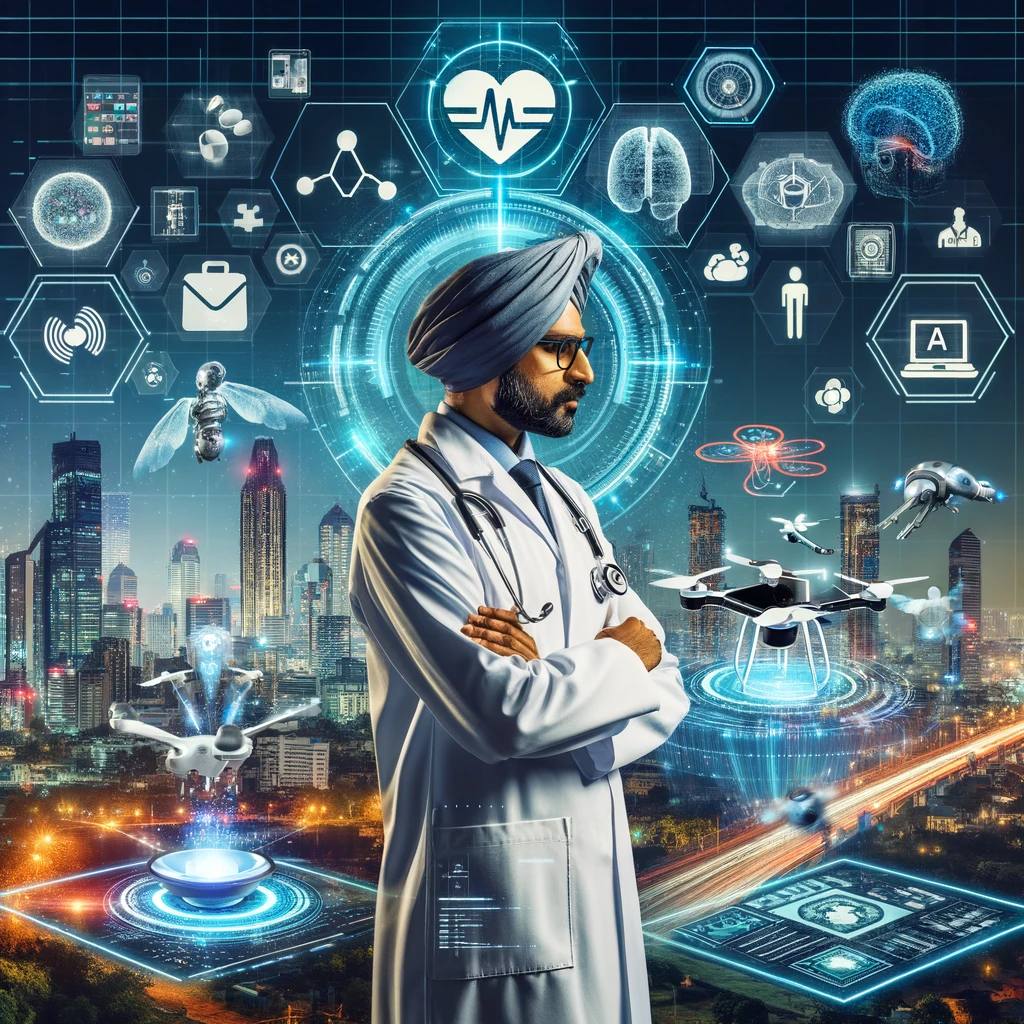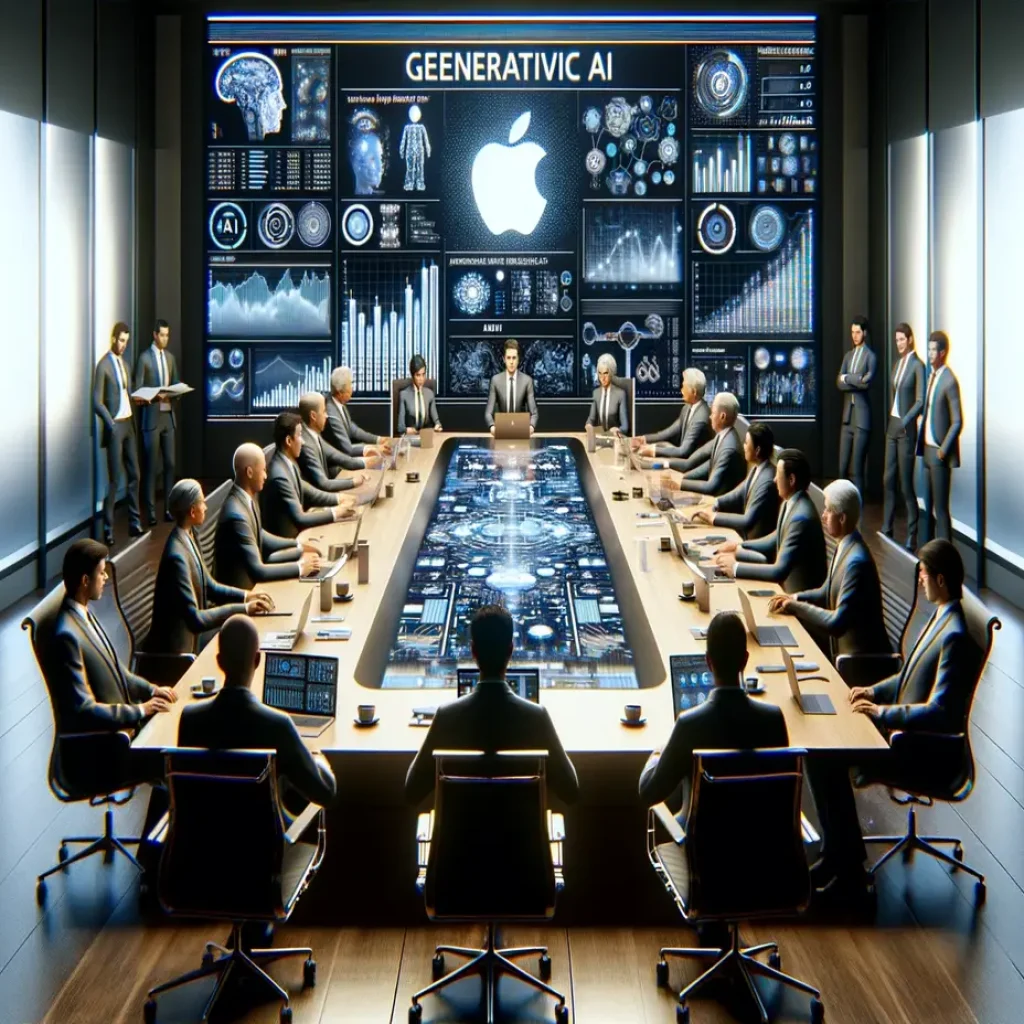In 2024, the healthcare landscape in India is poised for significant transformation, driven by the adoption of cutting-edge technologies. Hospital Chief Information Officers (CIOs) from Max Hospitals and the Rajiv Gandhi Cancer Institute have shared insights into the evolving trends in health information technology (IT) and the challenges and opportunities that lie ahead.
Rise of robotic solutions
Robotic solutions for surgeries are on the rise in Indian healthcare. What was once the domain of big private hospital chains is now becoming more accessible to smaller public hospitals. This shift is attributed to the increasing competitiveness of domestic alternatives, which have significantly reduced the cost barrier. Robotic surgery offers benefits such as reduced blood loss, enhanced surgical precision, and shorter hospital stays, making it an attractive option for patients and healthcare providers alike.
Continued demand for generative AI
Generative AI, a specific form of artificial intelligence, has gained popularity due to its ability to streamline administrative tasks in healthcare. Hospitals in India are increasingly turning to generative AI to optimize their workflows, allowing healthcare professionals to spend more time with patients and less on administrative duties. The demand for efficient tools that enhance patient care is expected to drive the continued growth of generative AI in Indian healthcare.
Technological advancements in radiology and pathology
The field of Radiology is witnessing a rapid transformation in India, with the integration of AI and machine learning. AI-powered tools are assisting radiologists in analyzing medical images, saving time and effort. These tools can distinguish normal from abnormal images, detect nodules imperceptible to the human eye, and suggest further examination, contributing to more accurate diagnoses and improved patient outcomes.
In Pathology, high-precision cameras are replacing traditional glass slides, allowing for the preservation of digital images. AI and machine learning are being harnessed to analyze these digital images, similar to the approach taken in Radiology. The successful application of AI in detecting prostate cancer is a promising development, with plans to expand its use to detect other types of cancer and explore therapeutic applications.
The impact of COVID-19 on healthcare IT
The onset of the COVID-19 pandemic in 2020 had a profound impact on the healthcare sector in India. It prompted a shift towards telemedicine and electronic health records (EHR), with doctors preferring remote consultations and digital record-keeping over traditional paper files. Patients now have the convenience of booking appointments and accessing their medical history through apps. This change in mindset has accelerated the adoption of IT in healthcare.
While the adoption of EHR is growing, it is not without challenges. Doctors find it beneficial to retrieve patient records electronically but are often reluctant to enter notes, orders, and prescriptions online. Hospitals are seeking dependable technologies that can create medical records seamlessly, allowing doctors to focus on patient care. Handwriting and voice recognition technologies are emerging as potential solutions, with promising developments expected in 2024.
Enhancing data security
As patient data becomes increasingly available online, the risk of data security breaches has grown significantly. Cybersecurity technology is evolving to address this challenge, with notable improvements anticipated in 2024 and beyond. Protecting patient data is a critical aspect of healthcare IT, and healthcare providers are investing in robust security measures.
Indian hospitals have historically been open to adopting medical technologies, and this trend is extending to IT solutions. Governments are actively encouraging the use of IT in healthcare, and patients are becoming more aware of the benefits it offers. Hospitals are aligning their budgets not only for testing new technologies but also for their effective implementation. They aim to position themselves as technology champions, embracing advancements that improve patient safety, reduce costs, and enhance the overall patient experience.
The healthcare sector in India is at the forefront of embracing technology to enhance patient care and operational efficiency. Robotic surgery, generative AI, and advancements in Radiology and Pathology are reshaping the landscape. The impact of COVID-19 has accelerated the adoption of IT, with telemedicine and EHR becoming integral parts of healthcare delivery. Challenges remain, particularly in EHR adoption, but promising developments are on the horizon. As patient data security gains prominence, cybersecurity technology is set to evolve further. Indian hospitals are on a path to becoming technology leaders, harnessing the potential of IT to improve healthcare outcomes and patient experiences.





